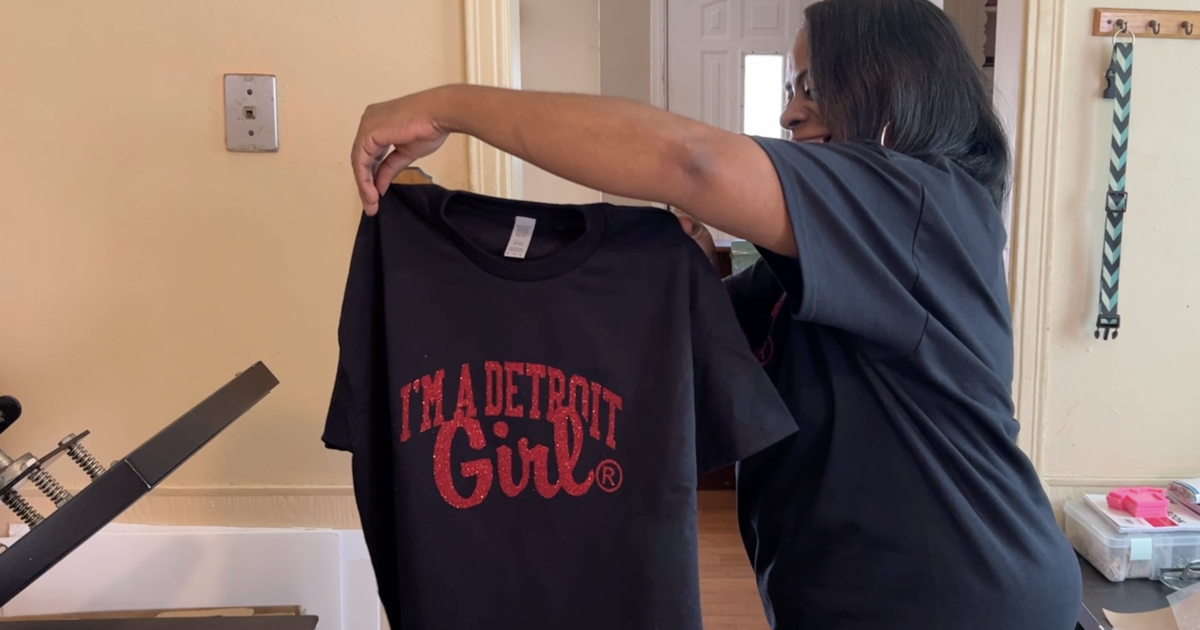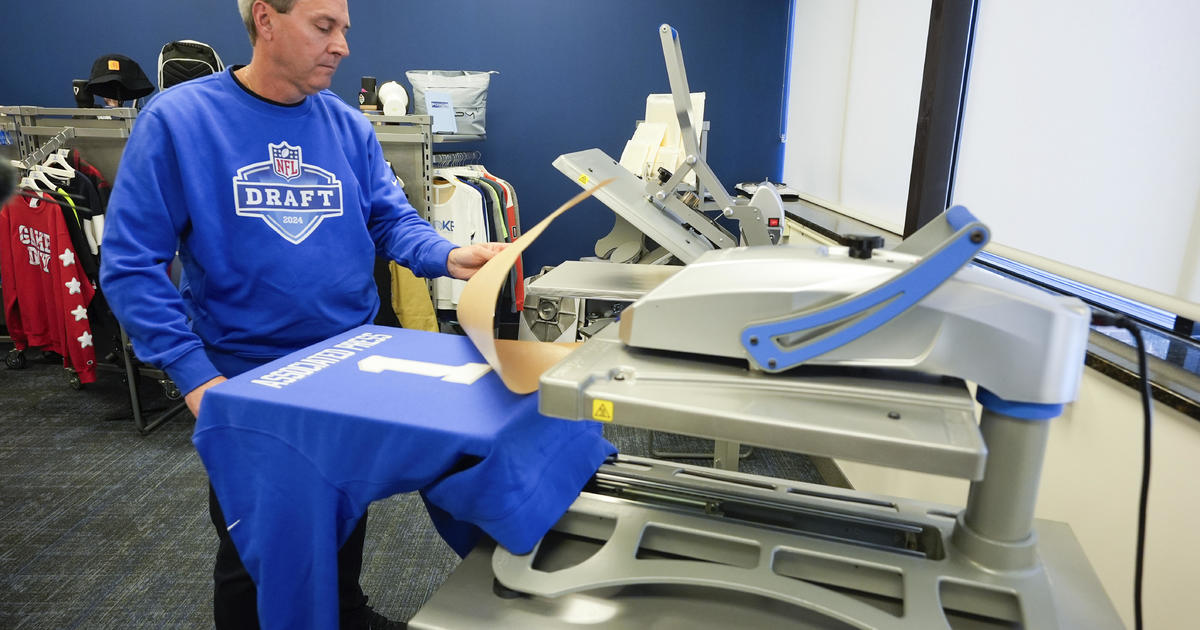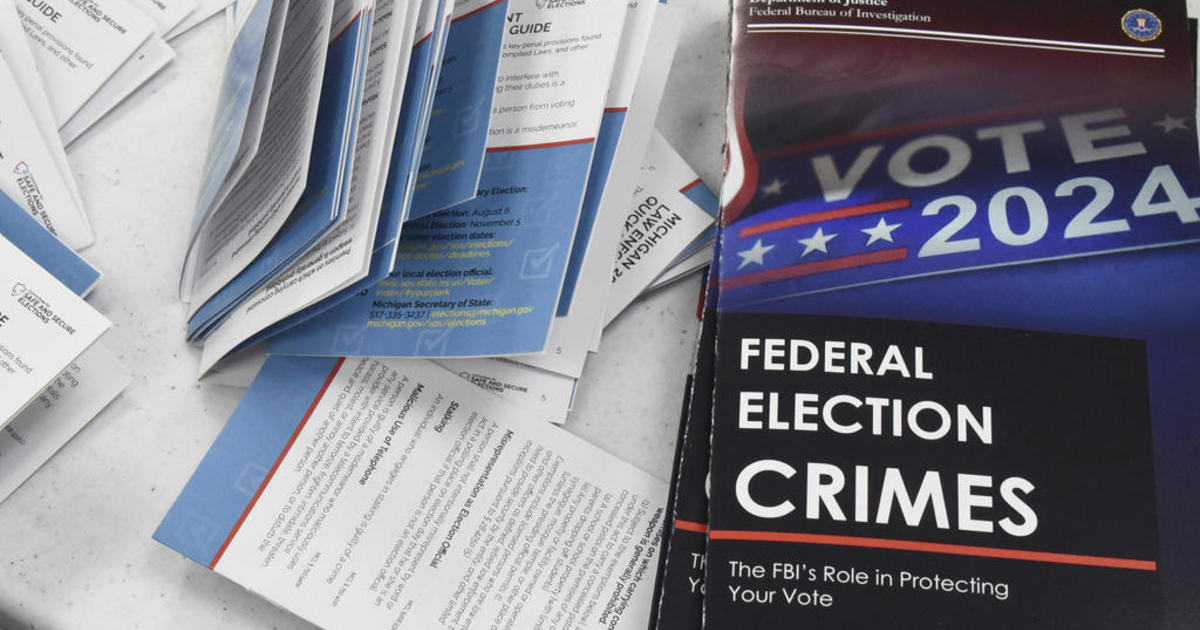Detroit's Motown Museum Unveils New 'Girl Groups' Exhibit
DETROIT (WWJ) - In the 1960s, Motown's stable of dazzling girl groups was unequaled on the pop music scene – in Detroit or anywhere else.
Responsible for a non-stop avalanche of hits, The Marvelettes, The Vandellas, The Velvelettes, and The Supremes were crucial to Motown's ascent as the country's most successful independent record label -- as were the invaluable studio contributions of The Andantes, who made everyone on the label sound better with their sweet gospel-imbued harmonies.
In a brand new exhibit at the world-famous Motown Museum, aka "Hitsville, U.S.A.," these pioneering women will have the spotlight all to themselves.
"We are very proud to exhibit these recording artists and the contributions they have made to music, style, and popular culture," Museum Interim CEO Allen Rawls said in a statement. "We also want to show how they achieved stardom through their persistence, drive, and talent."
"Girl Groups: The Grit, The Glamour, The Glory" -- which includes never-before-seen photographs, early show posters, stage costumes, 45-rpm records and even an original program from Dick Clark's touring "Caravan of Stars" -- honors four of Motown's most famous girl groups, and one who never quite got their due.
"We all know the music of the Supremes and Martha & the Vandellas, and many people are familiar with the Marvelettes and the Velvelettes," exhibit curator Lina Stephens said in a statement.
"But unless you are a Motown aficionado, you've probably never even heard of the Andantes. These girls were the vocal equivalent of Motown's famed studio band, The Funk Brothers, singing background vocals for artists like The Four Tops, Marvin Gaye, Kim Weston and Stevie Wonder."
The Andantes – the invaluable studio trio composed of soprano Louvain Demps, first alto Jackie Hicks and second alto Marlene Barrow – were Motown's in-house female vocal group. They added backing harmonies to countless hits by nearly everyone populating Motown's roster. In all, their voices have graced more than 20,000 Motown songs.
The Andantes' voices were in such perpetual demand by all of Motown's Studio A producers that they rarely performed live. Their angelic harmonies can be heard on such hits as "Reach Out, I'll Be There" by the Four Tops and "Save The Children" on Marvin Gaye's classic album "What's Going On". The exhibit not only showcases their studio work, but also their rare concert appearances and their unreleased single, "(Like A) Nightmare."
Motown's first number one pop hit came in 1961, courtesy of five high school lasses from suburban Inkster, Michigan. "Please Mr. Postman" also happened to be The Marvelettes' very first release. It was the start of a long and highly successful career for Motown's first major girl group.
Katherine Anderson Schaffner, Georgia Dobbins, Gladys Horton, Georgeanna Tillman and Juanita Cowart sang together in the school choir and decided to form a group for a talent contest. They won first prize – a Motown audition. The Marvelettes ultimately joined Hitsville U.S.A. and went on to record a long string of memorable hits like "Beechwood 4-5789 and "Don't Mess With Bill".
The harmonies produced by five young Western Michigan University students were so uncommonly smooth, they sounded like the aural equivalent of velvet. That's how The Velvelettes decided upon their distinctive name. Cousins Bertha and Norma Barbee, lead singer Caldin (aka Carolyn) Gill and her older sister Mildred, plus Cal's best friend Betty Kelly, were still in high school when they drove four hours in a blizzard to audition at Hitsville, U.S.A. After being mistakenly turned away, they ended up earning a coveted Motown contract, with one stipulation.
"Our parents told Berry [Gordy] that we would have to stay in school," remembers Bertha. "That was the only way they would sign the contracts." The Velvelettes went on to record such songs as "Needle In a Haystack" and "Really Sayin' Something."
Martha Reeves was so excited about the prospect of a Hitsville audition that when A&R boss William "Mickey" Stevenson told her to "drop by sometime" after catching her act at the 20 Grand in October of 1961, he didn't realize she would quit her day job and make a beeline for Motown's headquarters the very next morning. Although she started by working as Mickey's secretary, she eventually got her big break singing background for Marvin Gaye.
Eventually, Martha & the Vandellas would compile an impressive string of major hits including "(Love is Like a) Heat Wave," "Jimmy Mack" and "Dancing In The Street," Motown's national anthem.
And then there were The Supremes, whose meteoric rise to superstardom was like no other in the annals of Hitsville or anywhere else. Originally known as the Primettes, they were a product of the Brewster Housing Projects on Detroit's East Side. And though success did not come instantly, from 1964 on they were the most popular female vocal group on the planet.
Diana Ross, Mary Wilson, and Florence Ballard were a global phenomenon. Transcending all boundaries, the Supremes were legitimate superstars who scored a dozen number one pop hits, including "Where Did Our Love Go", "Baby Love", "Come See About Me", "Stop! In the Name of Love", and "You Can't Hurry Love".
These are the real-life Dream Girls that bedazzled America and the world, the glamorous pride of Berry Gordy's musical empire. They were role models for a generation while recording some of the greatest songs ever committed to tape – songs that still play all over the globe on a minute-by-minute basis.
That they hold up so well over a half century later vividly testifies to the brilliance and creativity defining Motown's girl groups during a pivotal decade in American history. These women embodied the Grit, the Glamour, and the Glory that was 1960s Motown. At the same time, they had a major impact on female empowerment.
The Motown Museum is open Tuesday through Saturday, 10 a.m. to 6 p.m. Admission is $10 for adults and $8 for seniors and children.
For more information, visit www.motownmuseum.org or call 313-875-2264.



